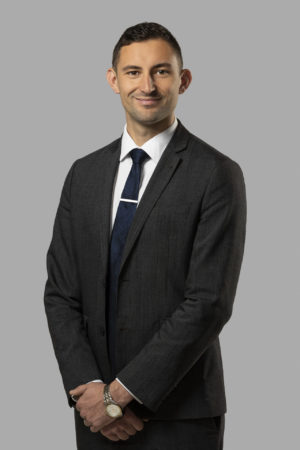Damien Mahon – The Music
Criminal Lawyer at Hugo Law Group
NSW’s Pill-Testing Stance A Risk As Festival Season Rages On
The following op-ed comes courtesy of Damien Mahon, a Criminal Defence Lawyer at the Hugo Law Group.
The festival goer has taken drugs. So have the friends they are with and so have hundreds of others at the same event.
They become disorientated. Their already rapid heartbeat becomes irregular as they collapse and start to seizure. Paramedics are almost immediately at hand. The young person is unresponsive, but the medical team know exactly what is happening. They administer anti-convulsant medication and race the patient to the nearest hospital where a team of doctors is already waiting for them to arrive.
The medical team immediately commence multiple and simultaneous interventions to stabilise the patient. A cardiac monitor is applied, as is a ventilator to allow oxygen flow. The patient is intubated and IV lines are used to administer fluids and medication – designed to address the seizures and stabilise the patient’s now frenzied heartbeat. The doctors know their biggest adversary is the heat. Wet towels are pressed against the sweaty body, but the patient is too hot.
Within minutes the commotion wanes as it becomes clear that the central nervous system has been damaged beyond repair.
Even when considered against other medical emergencies, a drug related death at a music festival is a particularly confronting event. It is a tragedy that rightly sparks fear, concern and introspection as a community.
News that four people were hospitalised with drug-related issues after a Sydney dance festival last weekend underscores the dangers of taking drugs at music festivals, particularly in heatwave conditions. The NSW government says the responsibility for drug use rests on the shoulders of individuals, but even senior police are beginning to agree young people will continue to consume drugs, and the “just say no” message simply does not work.
This shift comes after years of policy structured around a “zero tolerance” approach to the possession and use of prohibited drugs. NSW residents have witnessed an era of policing so heavy it provokes comparisons to the Giuliani administration.
Like young people, hundreds of officers, both uniformed and plain clothed, would flock to public music events hosted throughout the summer months. Police brought with them sniffer dogs, that when called upon to detect illicit drugs on patrons, got it wrong an alarming 75 per cent of the time.
Facing the risk of detection, some young people would panic and ingest drugs which they were trying to hide or carry for others. Children as young as twelve were stopped, questioned and subjected to strip searches.
The Monday morning following a major festival event would be signalled by long queues streaming from the front doors of Local Courts, where people lined up, waiting to meet low quantity drug possession charges. Young persons were not deterred. The message the government was sending to drug users, mostly young persons, was falling on deaf ears.
While the government says it is working with festival organisers to make them as safe as possible, there are practical, harm reduction programs operating in other jurisdictions which continue to be overlooked in this State, including making pill-testing available so that drug users can check the contents and purity of drugs, before consuming them.
The government in this State rests paralysed between two positions.
The first is an acceptance that end level drug users will not be deterred from drug use by increasing police presence at music festivals and serving Court Attendance Notices.
The second is the stubborn idea that facilitating drug testing sends a message that condones or supposedly, even encourages drug use.
While this residual reluctance to fully embrace the concept of drug use as a health issue remains, the reality is that people who decide to use illicit drugs, do so at the risk of serious, sometimes fatal drug related health complications.
This risk includes the potential presence of deadly chemicals that have been detected in pills tested as part of interstate programs. When the test is being conducted, the user is speaking to a doctor, not a member of law enforcement. The process itself favours education, moderation and rehabilitation.
In 2019, the State Coroner held an inquest into the death of six drug related deaths at NSW music festivals. Her first recommendation to the NSW government was that they start a pill-testing pilot as soon as possible.
Now four years later, nothing has changed in NSW. Only the ACT and Queensland have sensibly made moves to introduce pill-testing.
wo young men who attended the Knockout Outdoor festival lost their lives as recently as October this year. The government’s continued trepidation creates a real risk that others will suffer the same fate. How many more of our young people will needlessly lose their lives this summer due to government inaction?
